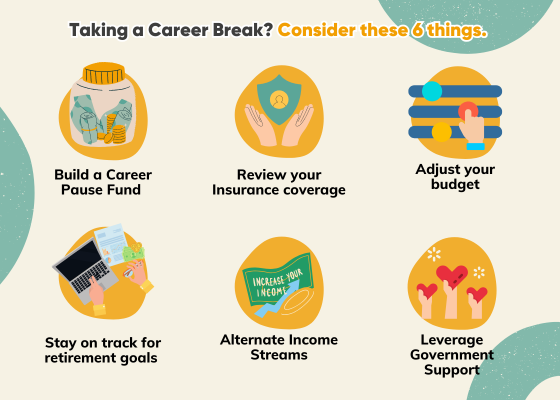Note: It was announced in November 2023 that MoneyOwl will be acquired by Temasek Trust to serve communities under a re-purposed model, and will move away from direct sale of financial products. The article is retained with original information relevant as at the date of the article only, and any mention of products or promotions is retained for reference purposes only.
______________
Find out why wrap fees being paid to financial advisers are cut despite the work being put in for a good investment experience
I have been advising clients since 1998. Having gone through multiple financial crises, the greatest being the Global Financial Crisis in 2008, I know through experiences and with evidence, that in order to give clients a good investment outcome, the following steps are necessary:
- Having a suitable asset allocation (different proportion of our money invested in equities and bonds) based on clients’ need, ability and willingness to bear risk. This is done based on understanding their current financial situation and future goals as documented in their financial plan
- Selecting suitable instruments (such as unit trusts) that are low in total expense ratio (also known as the unit trust’s annual management fee) to execute the asset allocation
- Performing regular rebalancing of the asset allocation
- Doing regular progress check in the context of clients’ overall financial plan so as to keep them motivated to stick to the plan
- Performing risk/behavioural coaching so that clients can stay invested or not make rash decisions during market volatility

As you can see from the above, these require quite a bit of work and competence to do it and most consumers do not have the knowledge, experience, tools or even time to do it themselves. As such good financial advisers are engaged to perform all the above. And if we believe in the value of good advice, we need to compensate advisers adequately. The compensation that advisers charge to perform the above is called wrap fees.
In addition to wrap fees, most financial advisers also charge a front-end sales charge on the investment amount. Such front-end sales charge compensates advisers who do not charge a flat fee for their effort in designing a suitable financial/investment plan and setting up the investment accounts. But there is a risk that some advisers might abuse it and “churn” (taking the sales charge each time advisers sell and buy unit trusts for the client) their clients.
Most advisers are also paid a portion of the unit trust’s annual management fee when they execute clients’ investment plans using these unit trusts.
So in general, consumers when engaging financial advisers to advise and manage their monies pay the following fees:

While services need to be paid, all the above fees do eat into the return and affect investment performance and as much as possible should be reduced.
Hence in March 2018, MOM announced the removal of the sales charge and a reduction of the wrap fee cap for the CPF Investment Scheme. With these enhancements, CPFIS funds would no longer incur a front-end sales charge and adviser wrap fees (including platform/custodian’s fee) would be capped at 0.4% p.a. (Initially, this was to be effective by October 2019, but MOM has decided to defer changes to October 2020.) There are no changes to the fund annual management fee and fund managers can still charge up to 1.75% p.a.
While the above enhancements will ultimately reduce the initial sales charge to zero and the total recurring expense to no more than 2.15% p.a., there are still a few problems:
- The recurring expense of up to 2.15% p.a. is still too high. It still eats substantially into the returns of the investment portfolio. In my opinion, a fee closer to 1% p.a. range is more appropriate. There is a need to reduce the annual management fee to achieve that.
- While I have always been an advocate of not taking commission in giving advice, to reduce sales charge to 0% may hurt good advisers who should be paid for performing financial/investment planning for the clients. If we are afraid of advisers “churning” clients account, one way to mitigate this is to only allow advisers to charge the initial sales charge once for new money and subsequently not allowed to take any more sales charge when they rebalance clients’ portfolios.
In addressing the first problem, there is a need to question whether paying a higher annual management fee delivers better returns. There is enough evidence to show that low expense indexed funds or evidence-based investing funds such as those from Dimensional Fund Advisors (average management fee of 0.35% p.a.) consistently perform better than expensive actively-managed unit trusts (average 1.75% p.a.) over the long run.
But with the wrap fees (that are paid to financial advisers) being ultimately reduced to 0.4% p.a. under CPFIS, advisers might not be motivated to recommend these low expense funds (which advisers do not get a cut of the management fees), especially for small accounts. Instead, they might recommend rather high expense actively managed funds (where advisers get a cut of the management fees) to the detriment of their clients. Advisers who will still recommend low cost indexed funds in the interest of their clients might instead be disadvantaged.
What might be more appropriate is to allow advisers to charge a wrap fee of up to say 0.8% p.a. but reduce annual management fees that unit trust managers can charge to say 1% p.a.. If unit trust managers do not find this financially viable, they can always exit the CPFIS and make way for lower expense instruments. With this change, even if advisers want to continue recommending high expense actively managed funds, the cost is substantially reduced to below the 2% p.a. range.
Getting a good investment outcome is like visiting a restaurant with a good chef. How good the dish is, is lesser dependent on how expensive the ingredients are but on how good the chef is. It does not make sense to pay so much for ingredients that do not matter and so little for the chefs that actually matter. In the financial services space, unit trusts are like ingredients and financial advisers are the chefs.
But perhaps for financial advisers, this is a good time for contemplation. Why is it so that when so much work (as highlighted above) is required from financial advisers for good investment experience, wrap fees being paid to advisers are cut? And yet, high cost unit trusts that are partly responsible for poor investment experience can continue to charge high fees? Is it because we are not doing the work that is required of us or our work is not being recognised?
This is an article written by Christopher Tan, Executive Director of MoneyOwl and CEO of Providend, MoneyOwl’s associate company. An edited version was published in The Sunday Times on 25 March 2018.
Announcement: With effect from 1 June 2022, MoneyOwl is a 100% NTUC Enterprise (NE)-owned company.




